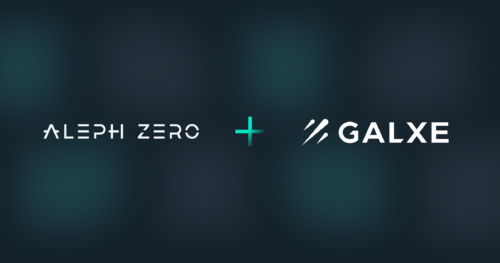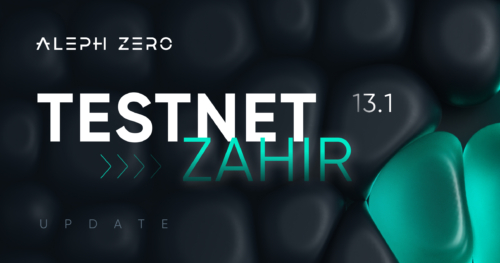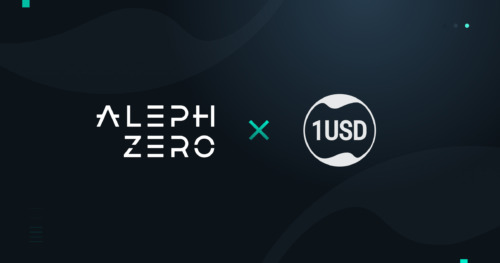DePin Cloud Computing with Acurast. Podcast Key Takeaways.
Mar 15, 2024
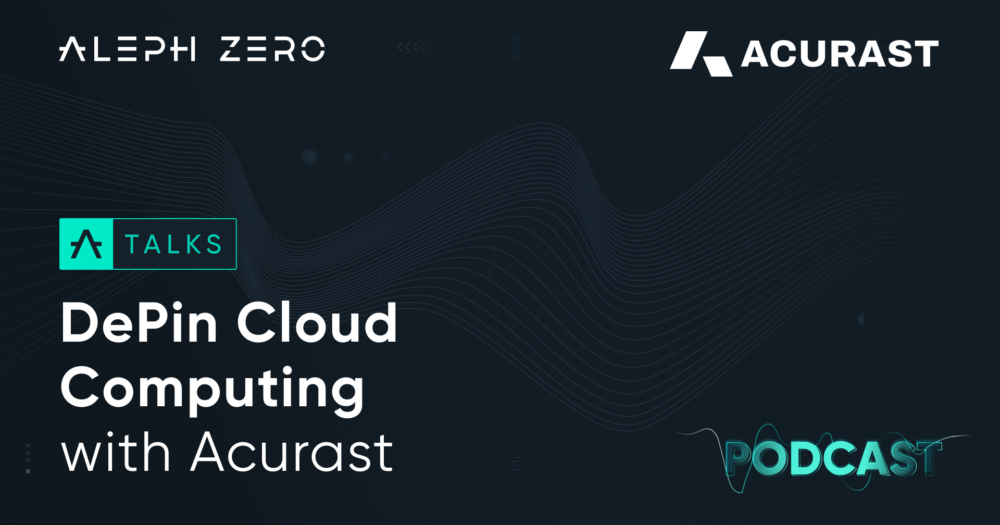
The latest addition to the Aleph Zero Podcast roster is an episode featuring Alessandro de Carli, co-founder of Acurast. This innovative cloud-computing platform recycles and repurposes old smartphones while leveraging blockchain solutions to provide a cost-effective alternative to their Web2 predecessors, putting it right in the middle of the exciting DePin narrative.
Listen to the episode on the platform of your choice
TL;DL
Too Long; Didn’t Listen
- Acurast is a decentralized serverless cloud platform.
- Uses recycled and repurposed smartphones as the foundation of its service, as the processors found onboard these devices are more than enough to complete most tasks when banded together.
- Offers the convenience of centralized alternatives at a lower price point.
- Leverages blockchain’s privacy-preserving properties and the phone’s trusted execution environments to ensure user safety.
- Currently, Accurast offers four services, namely:
- Compute
- Crawl
- Data feed
- Data-on-demand
- Alessandro de Carli believes it is vital to create decentralized cloud services to reduce the dominance of giants such as Amazon, Google, and Microsoft.
- The project caters to a wide variety of Android devices that users can upscale for computational power.
- Turning a phone into a computational node is simple, thanks to Acurast’s simple onboarding process.
- Economic incentives are provided for users who provide computational power to the decentralized cloud.
- Acurast leverages Aleph Zero’s low latency, privacy, and security features.
Decentralizing Cloud Computing
At the heart of Acurast’s unique proposition for cloud computing is recycling damaged or unused smartphones. This allows anybody to tap into the network and hook up their phone to be part of the service, providing a service that competes with centralized giants at a much more competitive price point. As mentioned by Alessandro de Carli, Acurast is up to 50 times cheaper for its cloud computing services compared to the leading Web2 cloud computing providers. Currently, Acurast offers four services for users:
- Compute: this allows users to deploy their applications within seconds and get access to a powerful compute pool with decentralized resources.
- Crawl: designed to scrape the web with Acurast and profit from a decentralized network with entry points across the globe with residential IPs. It also enables the complete rendering of websites to extract data, supported by established open-source tools like Crawlee.
- Data Feed: allows users to source verifiable data, e.g., prices on-chain, sourced by a decentralized computing resource network, without having to trust any middleman.
- Data-on-Demand: this aspect of Acurast allows for On-Demand or Pull Oracles to provide in-time data on-chain instead of relying on updates based on intervals. Perfect for making Acurast an oracle provider for Web3 applications.
Why Should We Decentralize Cloud Computing?
Alessandro de Carli believes it is necessary to provide alternatives to centralized cloud providers such as Amazon, Google, or Microsoft due to the high prices these giants demand. Also worth noting is that centralized data gardens pose questions regarding the ownership and privacy of data.
Acurast answers these questions by offering a service that provides not only a lower-cost alternative but one that leverages the decentralized qualities of blockchain technology along with its security features to safeguard user data. Additionally, those users who provide computational power through recycled smartphones can benefit from the economic incentives woven into the system created by Acurast.
The Further Development of Acurast and Its Place in the DePin Narrative
One of the most talked about developments in the Web3 space is the advent of the DePin (decentralized physical infrastructure network) sector. This subsection of the broader blockchain space is focused on bridging the gap between software-based solutions and the physical world. Acurast’s use of smartphones for computational power while leveraging Aleph Zero’s blockchain privacy, security, and low latency features places the project in the midst of this exciting narrative.
Acurast has come a long way since the project’s inception, as it initially catered to only Google Tensor devices, whereas now it supports most Android devices. Alessandro de Carli sees incredible potential in smartphones as the arrival of 5G antennas will allow developing economies to provide fast internet service without the need to supply the costly fiber-cable infrastructure characteristic of older economies. Leveraging mobile devices also allows for a low entry cost for developing markets.
At the moment, Acurast’s setup involves dedicating the phone entirely to cloud computing. Still, work is being done to allow in the future for users to share their phones for computational purposes and personal use. Alessandro also mentioned the creation of an ambassador program to tap into the Aleph Zero community and a campaign to onboard more users.
Listen podcast
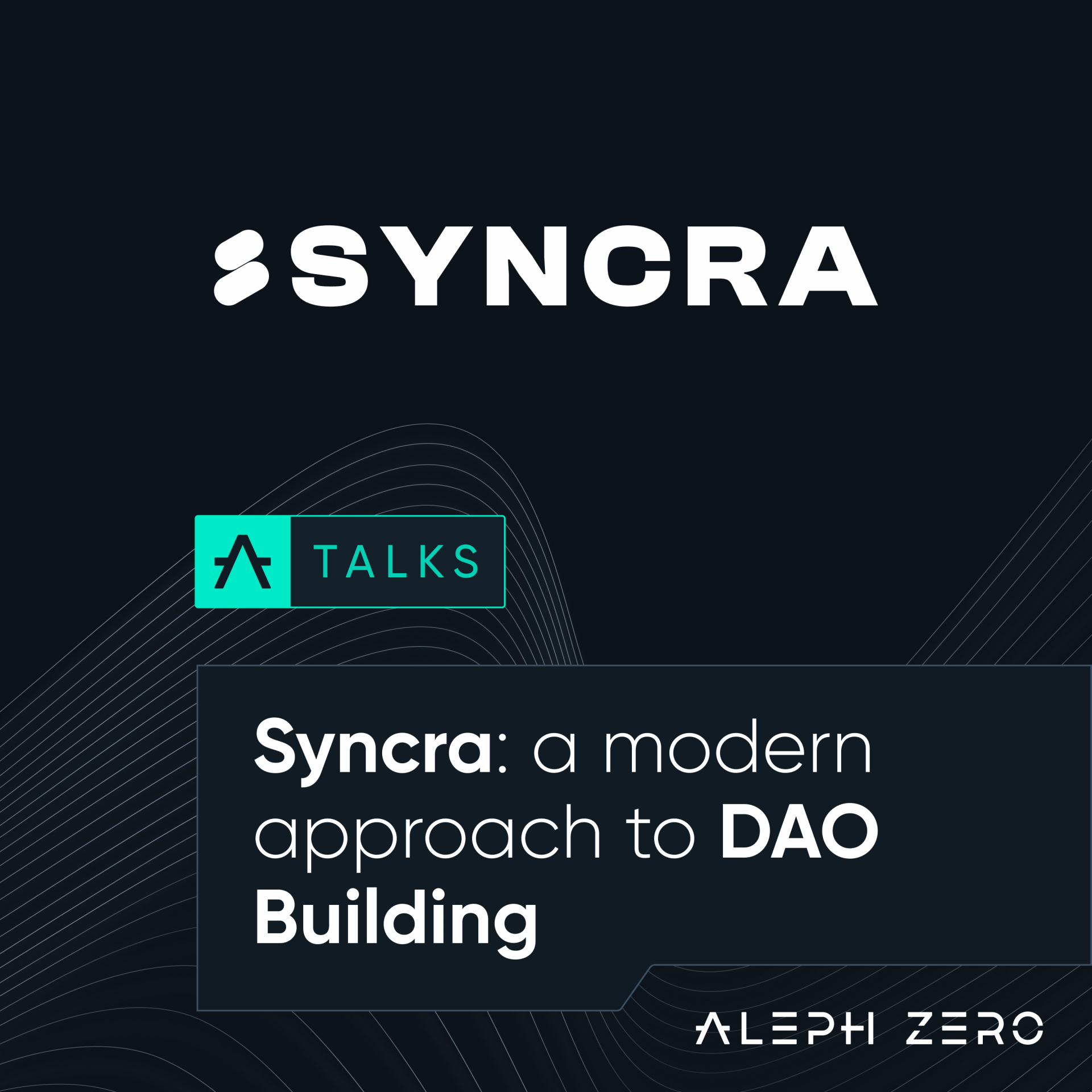
EP. 29 Syncra: Voting, Web3 Democracy, and DAO Building
This addition to the Aleph Zero Podcast is a meetup with Syncra, one of the projects building on the Aleph Zero network in cooperation with the Ecosystem Funding Program. Throughout the episode, we'll dive deep into what DAOs are and how they democratize Web3, as well as Syncra's unique no-code solutions for building this kind of online community.
